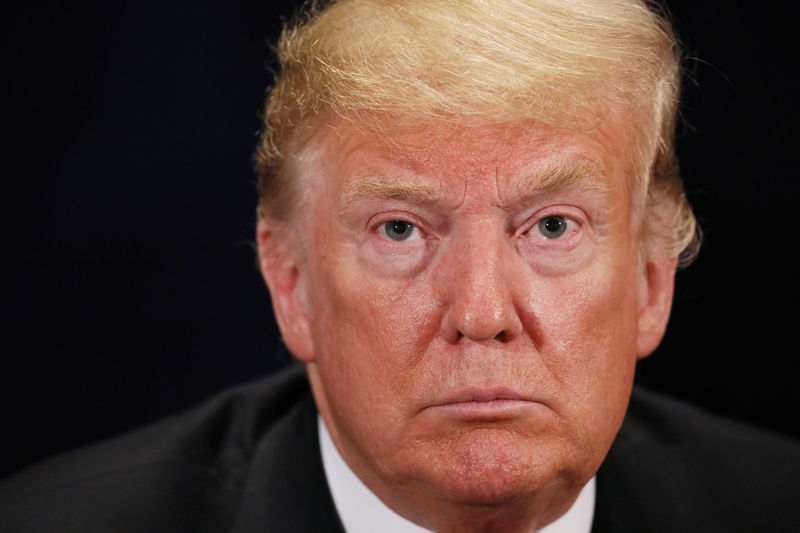By Jan Wolfe
WASHINGTON (Reuters) - The U.S. House of Representatives Judiciary Committee is scheduled to hold its first impeachment hearing on Dec. 4, starting a new phase of the inquiry that could lead to formal charges against President Donald Trump within weeks.
The following explains the basics of impeachment, what happens next, and why Trump is unlikely to be removed from office.
WHY IMPEACHMENT?
The founders of the United States feared presidents abusing their powers, so they included in the Constitution a process for removing one from office.
The president, under the Constitution, can be removed from office for "Treason, Bribery, or other high Crimes and Misdemeanors."
High crimes and misdemeanors has historically encompassed corruption and abuses of the public trust, as opposed to just indictable violations of criminal statutes.
Former President Gerald Ford, while in Congress, famously said: "An impeachable offense is whatever a majority of the House of Representatives considers it to be at a given moment in history."
No president has ever been removed as a direct result of impeachment. One, Richard Nixon, resigned before he could be removed. Two, Andrew Johnson and Bill Clinton, were impeached by the House but not convicted by the Senate.
HOW DOES IT WORK?
Impeachment begins in the House, the lower chamber, which debates and votes on whether to bring charges against the president via approval of an impeachment resolution, or "articles of impeachment," by a simple majority of the body's members.
The Constitution gives House leaders wide latitude in deciding how to conduct impeachment proceedings, legal experts said.
The House Intelligence Committee has conducted an investigation into whether Trump abused his power to pressure Ukraine to launch investigations that would benefit him politically, holding weeks of closed-door testimony and televised hearings. The panel is expected to release a formal evidence report shortly after lawmakers return to Congress on Dec. 3 from their Thanksgiving recess.
The Judiciary panel will use the report to consider formal charges that could form the basis of a full House impeachment vote by the end of December.
If the House approves articles of impeachment, a trial is then held in the Senate. House members act as the prosecutors; the senators as jurors; the chief justice of the Supreme Court presides. Historically, the president has been allowed to have defense lawyers call witnesses and request documents.
CAN THE SENATE REFUSE TO HOLD A TRIAL?
There is debate about whether the Constitution requires a Senate trial. But Senate rules currently in effect require a trial, and Senate Majority Leader Mitch McConnell has publicly stated that he will allow one to proceed.
Republicans could seek to amend those rules, but such a move is politically risky and considered unlikely, legal experts said.
WHAT ABOUT OPENING A TRIAL AND QUICKLY ENDING IT?
The Senate rules allow members to file, before the conclusion of the trial, motions to dismiss the charges against the president. If such a motion passes by a simple majority the impeachment proceedings effectively end.
Clinton's Senate impeachment trial, which did not end in a conviction, lasted five weeks. Halfway through the proceedings, a Democratic senator introduced a motion to dismiss, which was voted down.
WHAT'S THE PARTY BREAKDOWN IN CONGRESS?
The House comprises 431 members, 233 of whom are Democrats. As a result, the Democrats could impeach Trump with no Republican support.
In 1998, when Republicans had a House majority, the chamber voted largely along party lines to impeach Clinton, a Democrat.
The Senate now has 53 Republicans, 45 Democrats and two independents who usually vote with the Democrats. Conviction and removal of a president would require a two-thirds majority. So, for Trump to be removed from office via impeachment, in the case of all 100 senators voting, at least 20 Republicans and all the Democrats and independents would have to vote against him.
WHO BECOMES PRESIDENT IF TRUMP IS REMOVED?
In the unlikely event the Senate convicted Trump, Vice President Mike Pence would become president for the remainder of Trump's term, which ends on Jan. 20, 2021.
